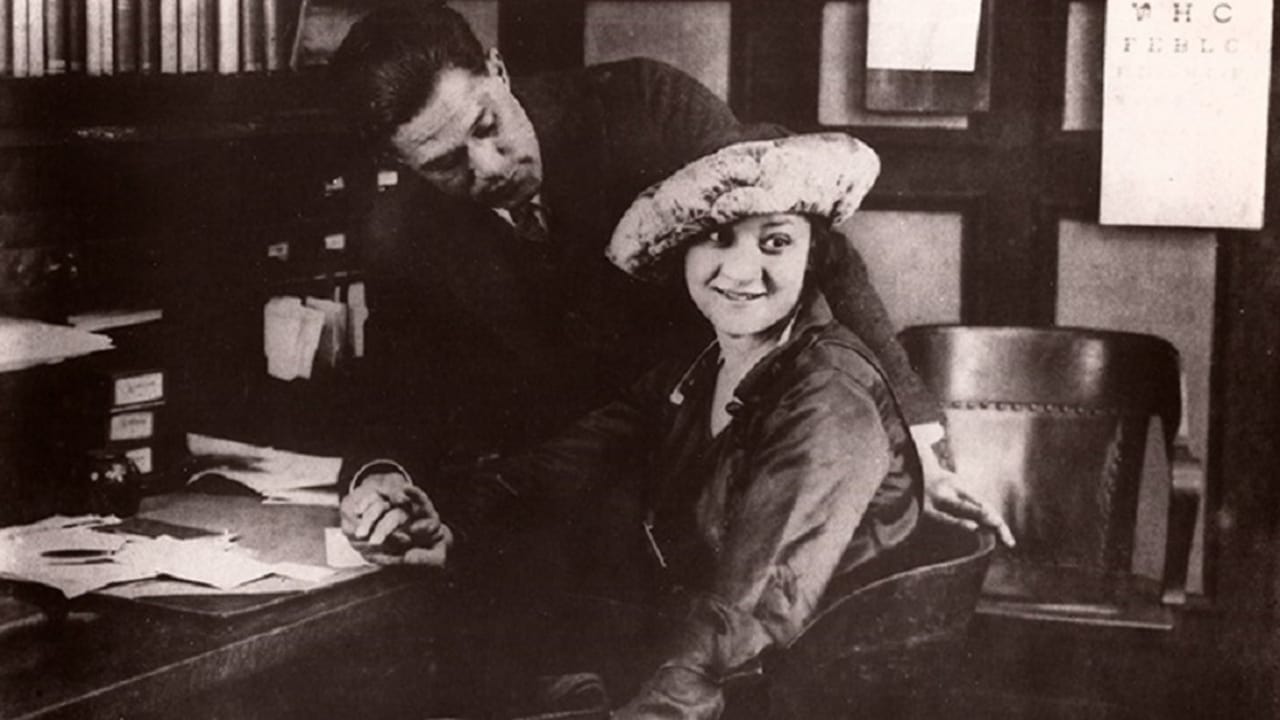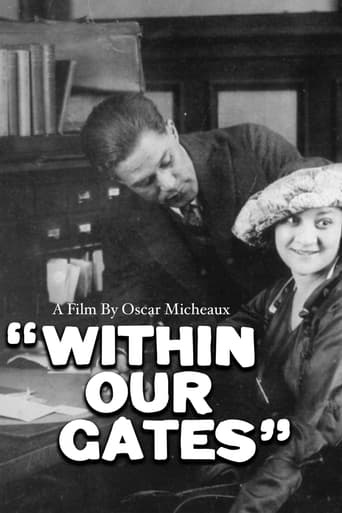



Wonderful character development!
Sick Product of a Sick System
The film makes a home in your brain and the only cure is to see it again.
View MoreActress is magnificent and exudes a hypnotic screen presence in this affecting drama.
View MoreThis film is the older known surviving print that was produced and directed by Oscar Micheaux. He is considered to be the first African American director of feature films. The movie was lost for a long time. The movie was found in late 70's, when a single print of the film was discovered in Spain. Still, the movie suffers much due to old age. The film is in rough state when it was discovered. Scars and scratches are all over the film. A brief sequence in the middle of the film was also lost. Only four of the original English inter titles survived, the rest having been replaced with Spanish inter titles when the film was distributed there. Much of the film is still incomplete as many scenes depicting abuse and murder were excised by the film board prior to release. The reasons of this was because they deem it too provocative after the 1919 Chicago race riots. The film focus on the physical, psychological and economic repression of the African American to the point that it was called a race film even if the movie wasn't all produce by all black cast. Produced primarily in northern cities. The target audience consisted primarily of poor southern blacks and southerners who had migrated northward. The problem with most race films is the fact that it rarely treated the subjects of social injustice and race relations. We see black people suffering but we don't see the races trying to heal the conflict. Its only goal to bring upon more anger against white people. Hints the controversial. This movie tries not to be one of those. The ending is all about healing but still you can hear the be proud of your race and be fearful of the others undertones in the film. Still, there is so much from Oscar Micheaux that remains lost. I hope that as the years go on, we'll be able to uncover more of his work. It's still a wonderful resource for those of us who are old film buffs and also interested in the African American contribution to cinema. Still the film is so hard to get through. Within our gates is the story of an educated Southern black school teacher Sylvia Landry (Evelyn Preer). She looks for a few days escape from the South after being abandoned by her lover. She plans to visit her cousin Alma in the North. While there, she is in effort to raise money for her near bankrupt school. The movie use flashbacks to point out the faults of the nation using the Landry's family as example. Its dark scenes of lynching, murder and rape attempt that is hard to watch. It does deconstructed the white ideology that lynching was to punish black men for alleged sexual assaults against white women, but also feed the fears the idea that all black women get rape by white men which isn't true. The utilization of cross cutting techniques in the melodramatic form with the rape and lynching is powerful. The ending twist is a bit shocking, but well written. Often regarded in the context of Griffith's The Birth of a Nation, which had appeared five years earlier. Critics have considered Micheaux's project as a response to Griffith to the point, that Micheaux took the film's name from a line in Griffith's film. It suggested that people should not harm one another, lest they be harmed. Micheaux's idea mirrors Griffith ending of North and South marriage plot in the sense that rather than all white reunion, Michaeux's film ends with a united sophisticated African American nation. Micheaux didn't blame only whites for the poverty of rural blacks, but criticized African Americans who helped to perpetuate their condition for personal gain that Griffith's movie fail to show. While Griffith portrayed black men largely as humorous objects or dim witted caricatures. Micheaux use dialect in order to be derogatory but to express the desire of a poor uneducated black man to provide his children with the means to a better life than his own. Many whites believed that African Americans were too lazy or stupid to want an education at the time. Michaeux was still wrong in portraying light skinned blacks as well educated man. He use them to represent the African American race in Dr. Vivian. While he portray dark skinned as dumb or corrupt people like in Efrem. Michaeux did anger black churches at the time due to his mocking of them with the character of Old Ned, an Uncle Tom type character. Micheaux viewed traditional black religiosity and the men who believe its dogma as dangerous to the freedom and advancement of African Americans. No matter what the controversial, it's a good movie from the Harlem Renaissance era. Give it a watch.
View MoreWith this month being once again Black History Month, I'm-for the second time since first writing these IMDb reviews back in 2006-commenting on various films made by African-Americans both in front of and behind the screen in the order they were made and released chronologically whenever possible. So it's 1920, which is the year from which the earliest surviving movie made by writer, producer, and director Oscar Micheax comes from. In Within Our Gates, Sylvia Landry (Evelyn Preer) dedicates her life to helping poorly educated kids of her race get a good education in the Southern states she resides in. But the money the school gets are not enough so she goes up North to get some more funding from a rich white lady. I'll stop there and just say that while there are some compelling scenes concerning other characters-like that of a couple of people that betray their own race like that of Rev. Wilson Jacobs (S. T. Jacks) and Efram (E. G. Tatum), a loyal butler of a wealthy white man named Gridlestone-the most compelling focus of the story concerns Sylvia's background concerning her previous family life with the Landrys which consist of father Jasper (William Stark), his wife (Mattie Edwards), and their young pre-teen son, Emil, (Grant Edwards) when we learn of their fates and that of Sylvia herself when she nearly gets mixed up with another man named Gridlestone, especially when the intertitle reveals his connection with her. Some of the other characters like that of fiancée Conrad Drebert (James D. Ruffin), Alma Prichard (Flo Clements), Larry Prichard (Jack Chenault), Dr. V. Vivian (Charles D. Lucas), and Det. Philip Gentry (William Smith) don't seem so connected especially concerning Conrad but they also have some compelling scenes. One more thing, as a Chicago native, I was fascinated seeing the Windy City as it looked at the time and learning that some of these players came from there. So on that note, Within Our Gates is worth seeing.
View More"Within Our Gates" is of enormous historical interest as a remnant of a brief period in the early twenties/late teens when there were (due to segregation laws) films made and distributed specifically by and for African-Americans. In this way, it has most deservedly been chosen for placement in the National Film Registry.By today's standards the film is as silly, half-baked, and paper-thin as something by a high school playwright. The performances are pretty atrocious, but for the most part they are at home with the style of acting that pervaded films of the silent era.It dealt with provocative issues of the time, such as overt racism, lynching, and the sorry state of education for the black community. Eighty years later we may have done a bit of shoring up, but no one's foolish enough to say that we're doing any better today. One positive thing that can be said is that a film dealing with these subjects today is encouraged, whereas in 1920 "Within Our Gates" was crushed by disapproving educators, legislators, and spineless distributors.
View MorePrimitively filmed, with a fractured and meandering plot. Micheaux gives little evidence here of having much directorial ability. It's hard to imagine anyone actually enjoying watching it.Of historical and sociological interest as an early black-made film, but compares poorly to professional-quality films of that era from the US and elsewhere. Of some value because it presumably shows how educated blacks of that era looked at themselves.
View More